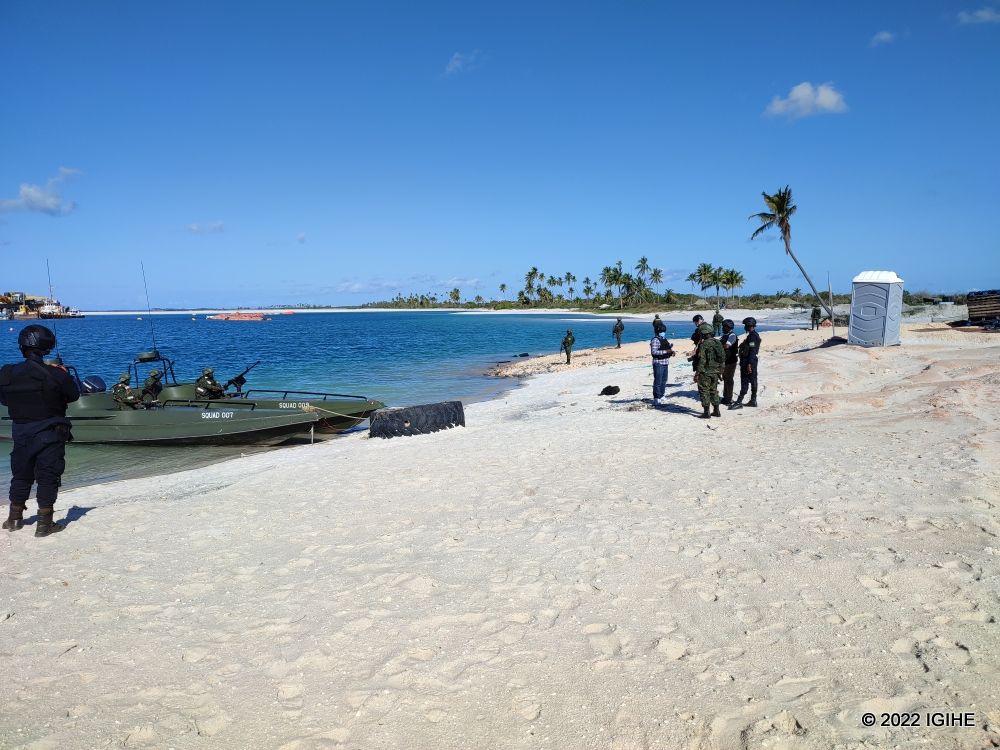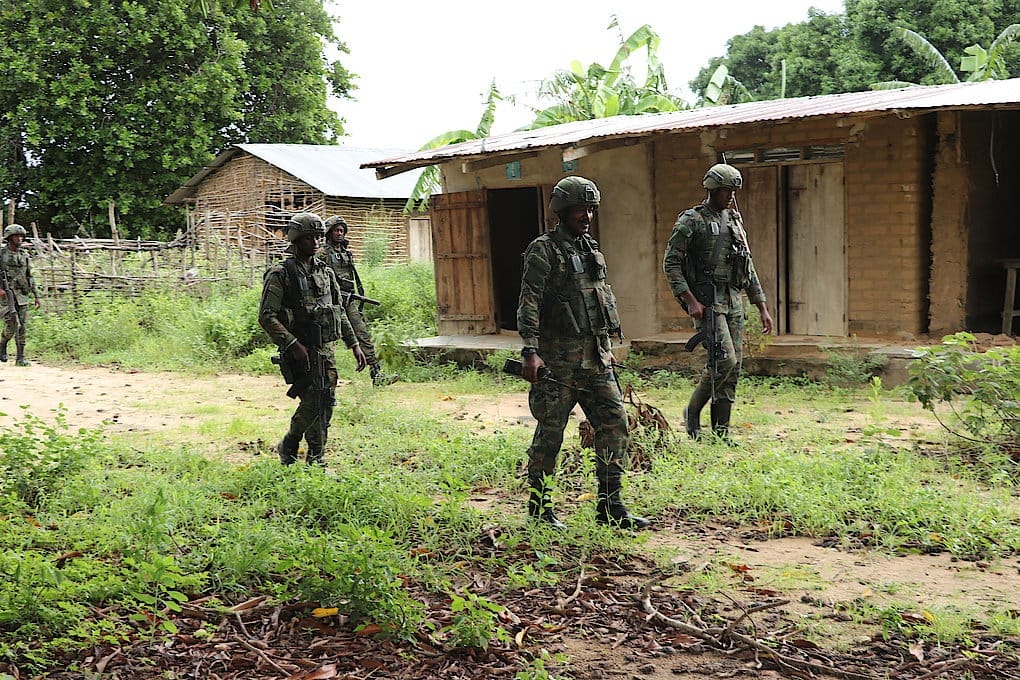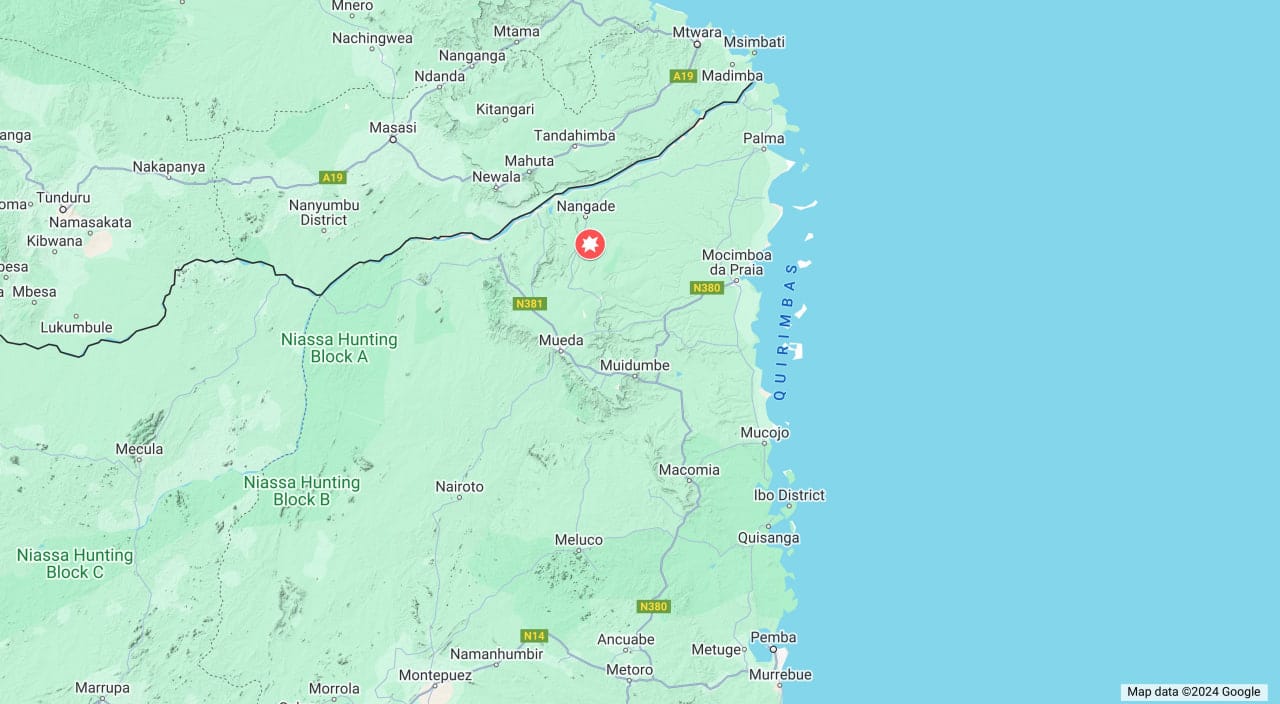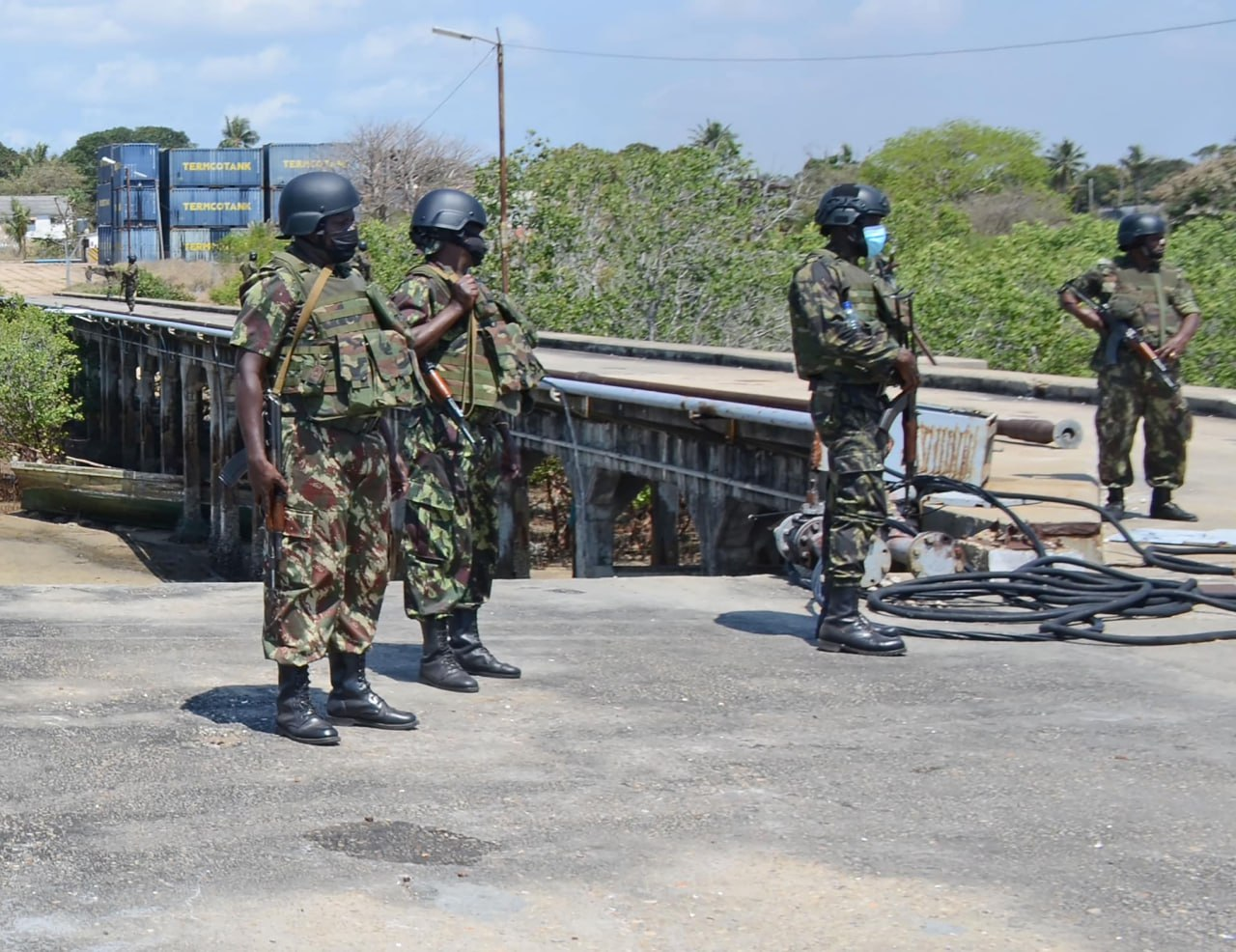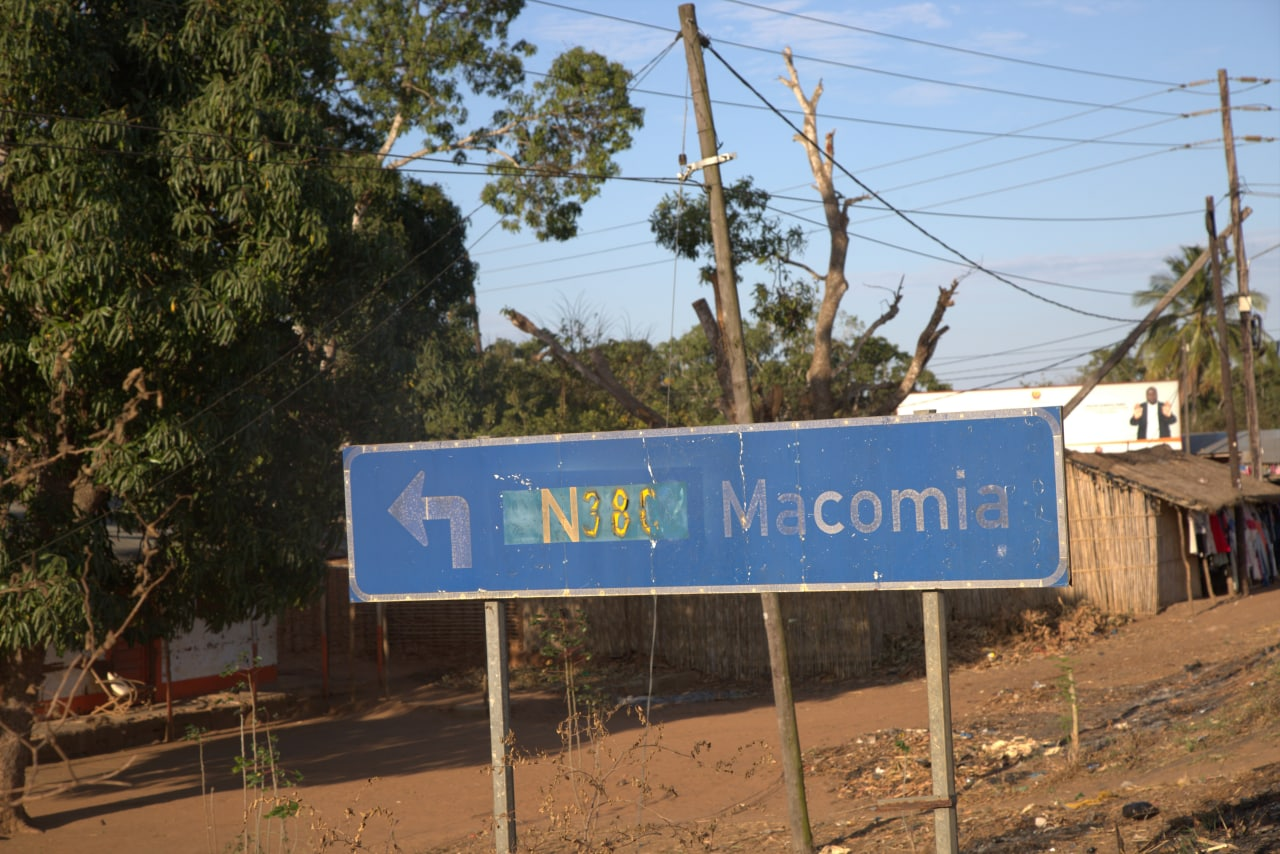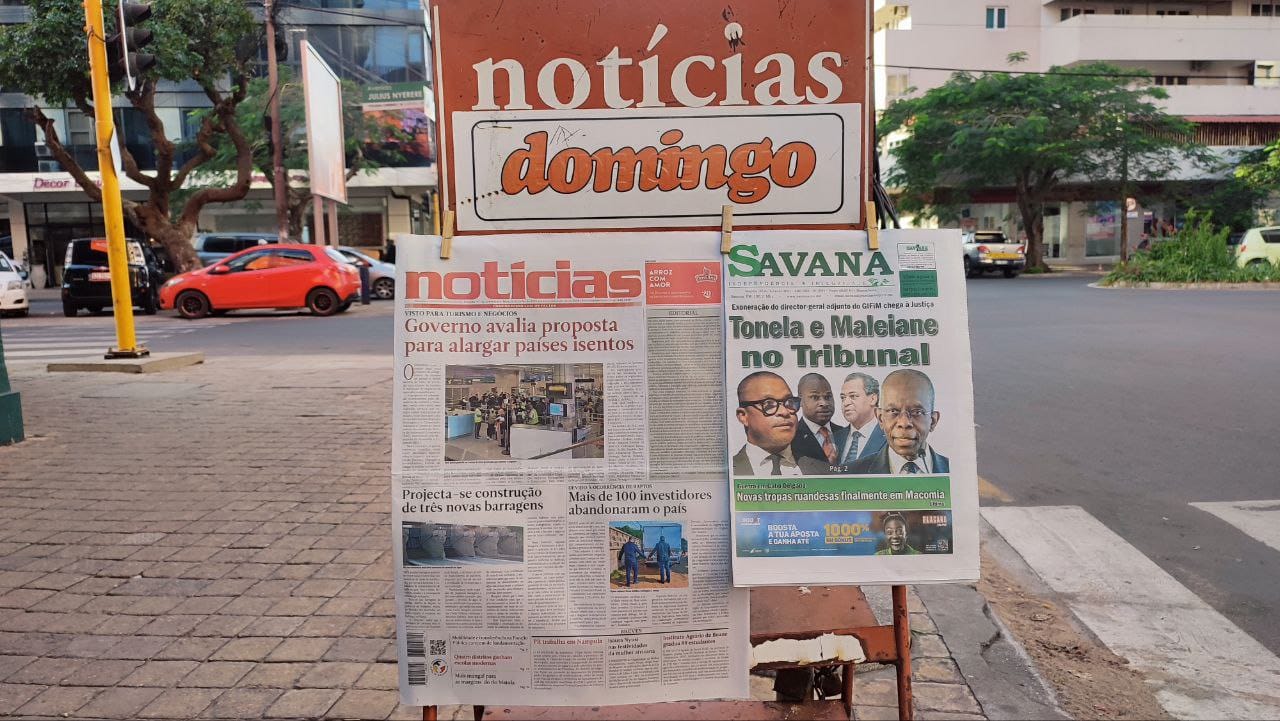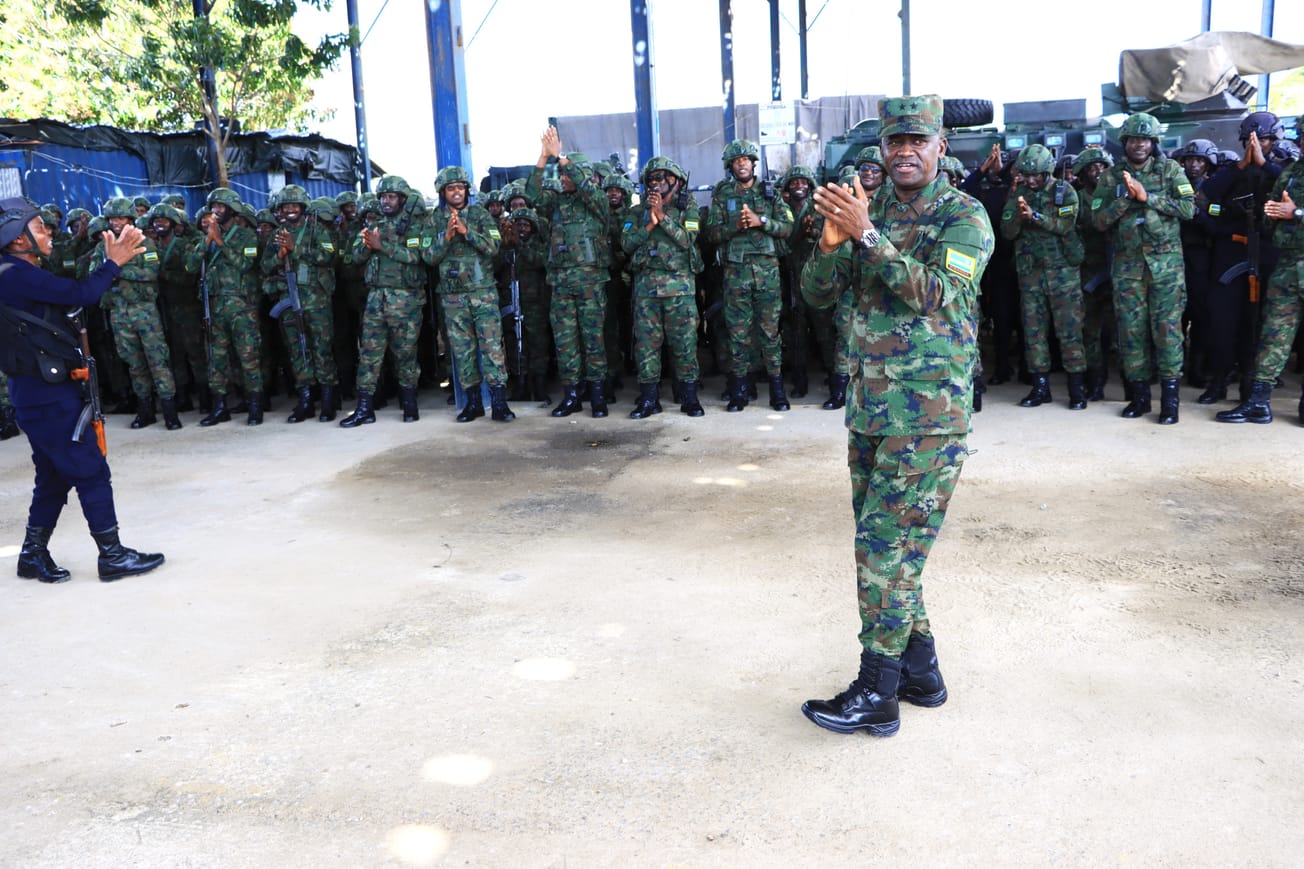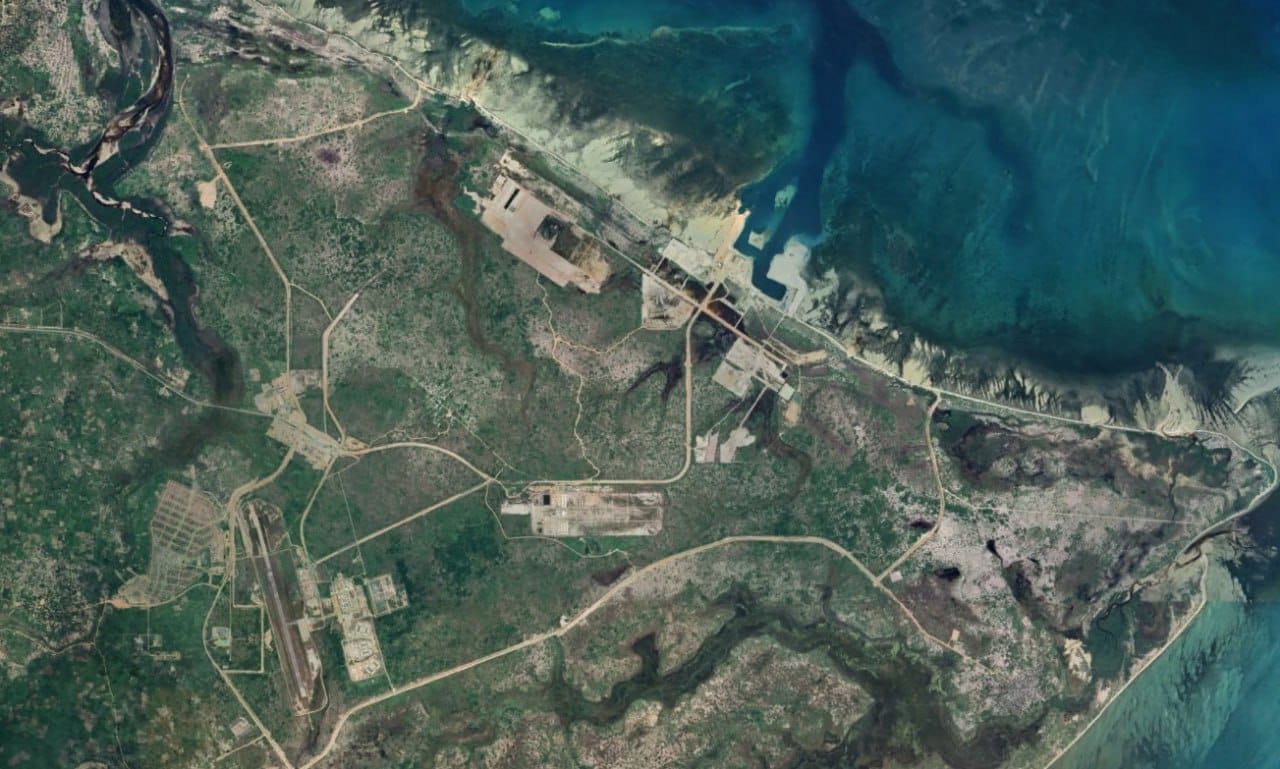By Fernando Lima for the Cabo Ligado Monthly report for March 2022
TotalEnergies is quietly moving to resume operations on the Afungi peninsula near Palma town by the fourth quarter of this year, although it is cautious about the security situation in Cabo Delgado. This would meet early expectations of a 2022 restart, after the tragic events in Palma in March 2021 that prompted the halt of the offshore Area 1 gas project. Both the government and TotalEnergies agree that the market constraints created by Russia’s invasion of Ukraine are creating additional pressure to resume work to build two liquefied natural gas (LNG) trains in Afungi. The trains would have capacity to produce 12 million tonnes of LNG per year.
At the last public event in which the TotalEnergies country manager in Mozambique Maxime Rabilloud took part, he was keen to emphasize that there have been “significant improvements in the security situation,” but conditions were still not good enough for the project to resume. “We cannot place the lives of our workers in danger,” he said to an audience of university students in Maputo.
However, at the main camp in Afungi, South African contractors are now working on the premises to meet new security requirements to protect the LNG project workforce. Workers laid off last year, after the shutdown of the project, are now being offered new contracts to return, mainly in social services and community-related activities.
With the districts of Palma and Mocímboa da Praia secured by a 2,500-strong Rwandan force, security concepts are being reevaluated in order to accommodate the new demand for energy created by the conflict in Ukraine. Rwanda will play a pivotal role in maintaining security in the area, but the return of the population is also key, since TotalEnergies wants to avoid any accusations of human rights violations involving those who were forced to leave the project site, or communities displaced by the war.
There are two challenges for TotalEnergies: resettling communities affected by the project, and the return of displaced people now next to the site. Local authorities have been approached to expedite the relocation of displaced people coming originally from Mocímboa da Praia, who have sought shelter in Quitunda and Maganja — communities bordering the project site — while the resettlement and local development process needs to be maintained in project-affected communities.
Quitunda is the model resettlement town on the western edge of the site, which was initiated by previous project operator, Anadarko, to accommodate families removed from the LNG site. Maganja village, to the south, could be eligible to receive additional resettlement funds due to its size and proximity to the sea, in contrast to Quitunda, where the government relocated fishermen, eliciting strong reservations from investors. Quitunda residents also live close to the local airstrip, which poses a clear security risk for the logistics related to the gas project.
After the attack in Palma on 24 March last year, thousands of refugees moved to Quitunda — joining many who had already arrived from Mocímboa da Praia — hoping to be protected by the 800-strong Joint Task Force (JTF), a special Mozambican military unit conceived to protect the gas premises. What was once a model town has been overwhelmed by people who are deprived of water and electricity and which lacks basic sanitation. Displaced families are not only living overcrowded in existing homes, but have also occupied many other forms of infrastructure such as the school, the marketplace, the community centre, the children’s playground, and even unfinished houses.
According to local sources, TotalEnergies could eventually pay for the rehabilitation of Quitunda, but never under the present chaotic circumstances. Maganja may also benefit from funding for improved infrastructure. A return to normal life in the villages close to the project site would also change the perception of the project over all. As Patrick Pouyanné, TotalEnergies CEO, pointed out previously, workers cannot do their jobs with security forces next to them, while the project could not continue if by so much suffering.
However, there’s mixed messaging on the return of the population to Mocímboa da Praia. Both the provincial government in Pemba and the administration at district level are in favour of a gradual move to the district capital. João Saraiva, the current acting District Administrator, himself now lives in Mocímboa da Praia and agrees the population should be supported in their safe return to the town. But Labour and Social Security Minister Margarida Talapa has argued that it is too early for a safe return. The town now has running water and electricity, and Médicins Sans Frontières (MSF) is providing basic health care in the district, but all other services are missing.
The military has also expressed its reservations, fearing that insurgents may infiltrate returnees, and thereby provide a logistical base for the insurgency — as has happened in the past. Mocímboa da Praia was at the centre of the rebellion in October 2017 and it was later under insurgents’ control for more than a year between 2020 and 2021, before the Rwandan forces expelled the rebels from their ‘capital.’
Humanitarian organizations and civil society bodies, which are following the situation closely, argue that vested interests are preventing the return of the displaced. Some allege that the resettlement centres are an excuse to divert aid to corrupt officials and their families, while vacant land — especially along the coast — could be appropriated by influential elites for mining and tourism.
The situation in the rest of Palma, where Afungi is located, is much better than Mocímboa da Praia. The population has returned in significant numbers, two hotels are now functioning, and even street markets are reopening.
Nevertheless, the Northern Integrated Development Agency (ADIN), the development agency created by the government to promote economic recovery and stability, continues to be ineffective. Funded by foreign donors, ADIN’s $2.4-billion strategy, conceived with support from the United Nations, the World Bank, the European Union, and the African Development Bank, has met a Council of Ministers-shaped blockage, owing to disagreements among ministers about the origins and motivations of the insurgency in Cabo Delgado. A consultant has explained that the government disagrees with the emphasis placed on the “internal causes” of the conflict presented in the strategy document, namely: poverty, unemployment, inequality, and ethnic and linguistic cleavages. The government usually avoids referring to domestic religious motivations for the violence and prefers to frame the insurgency as the result of external aggression — state shorthand for the Islamic State.
Another challenge for the restart is the prevailing insecurity in districts such as Nangade and Macomia. These were supposed to be defended by SADC forces, although they lack sufficient hardware and personnel to do so. SADC leaders addressed this situation in the past two summits in Lilongwe and Pretoria, while President Filipe Nyusi has been knocking on doors in Brussels and Amman, looking for funds for the international contingent. There are indications South Africa is increasing the size of its deployed force, although questions persist about the apathetic attitude of the Tanzanian forces in Nangade. President Nyusi was quoted in Palma a few weeks ago, speaking in Swahili for the Rwandan forces, as wishing Rwanda would expand its mandate to the districts where the insurgency remains active.
That sounds very much like a recipe for addressing the reservations expressed by TotalEnergies on the challenges of resuming the Area 1 gas project.

